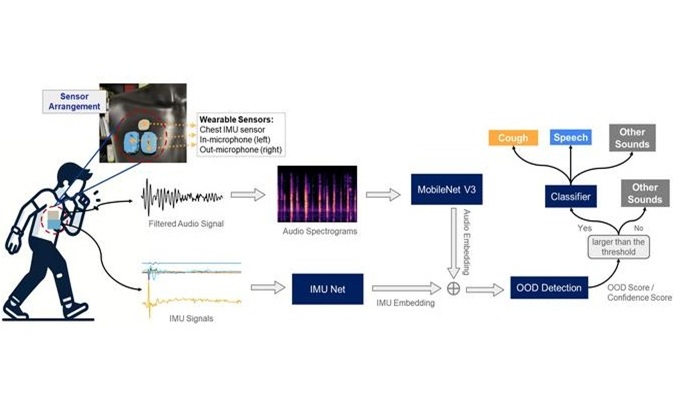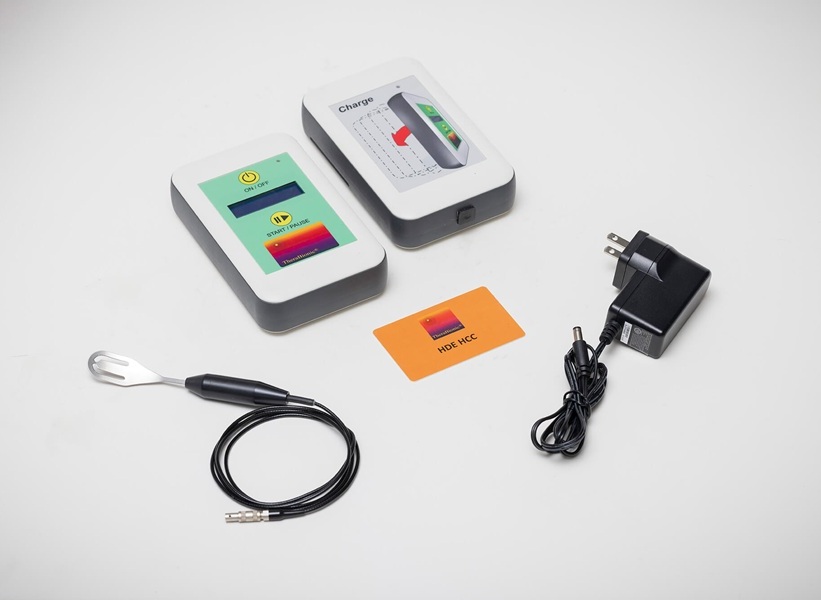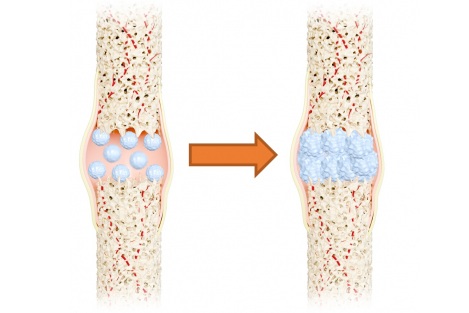Novel Concept of Immunologic Resilience Can Accurately Predict Which COVID-19 Patients Will Advance to Severe Disease
|
By HospiMedica International staff writers Posted on 09 Sep 2021 |

Illustration
A novel concept called “immunologic resilience” can accurately predict which COVID-19 patients will advance to severe disease and which will not.
Researchers from UT Health San Antonio (San Antonio, TX, USA) and the South Texas Veterans Health Care System (San Antonio, TX, USA) who developed the concept define immunologic resilience as the capacity to preserve or restore immune competence and control inflammation in the face of infection or other antigenic challenges. This capacity does not depend solely on age, according to the researchers. In fact, the level of immunologic resilience that precedes COVID-19 and develops during the viral disease is a strong predictor of COVID-19 outcomes regardless of age.
An 18-year-old could have inferior immunologic resilience, resulting in a high risk of severe COVID-19, whereas an 80-year-old with robust resilience could manifest less severe COVID-19. However, with age, the proportion of individuals with capacity to preserve immunologic resilience declines, contributing to the greater burden of COVID-19 in older persons. Conceivably, durability of vaccines may wane in persons with inferior immunologic resilience, say the researchers.
The scientists developed novel metrics to monitor immunologic resilience and evaluated them in 522 COVID-19 patients. Each patient’s level of immunological resilience was assessed on the day of admission and then daily for varying durations. Patients whose infections did not require hospital admission were visited at home for assessments. For comparative purposes, the researchers evaluated metrics of immunologic resilience in 13,461 individuals without COVID-19.
The researchers quantified immunologic resilience through “immune health grades,” which are based on measures of infection-fighting T cells, and blood cell gene expression signatures. An immune health grade of I signifies the best immunity and a grade of IV the worst. The group also analyzed grades from large control groups of otherwise healthy adults. The immune health grades and overall concept of immunologic resilience accurately predicted most patient outcomes, which in addition to mortality included hospitalization, need for advanced respiratory support, and levels of SARS-CoV-2 in the nasopharynx. Those who entered the hospital with the best immune health grades had shorter stays and non-progressive COVID-19, findings showed.
“We applied these immune metrics to every COVID-19 patient who came into the VA hospital. These metrics are highly prognostic. Metrics tracking inferior immunologic resilience predicted up to 19-times higher risk of dying within 30 days, which was the primary outcome of the study,” said the first author of the study, Grace C. Lee, PharmD, PhD, assistant professor, UT Health Science Center San Antonio and The University of Texas at Austin College of Pharmacy, and senior translational research scientist with the Foundation for Advancing Veterans’ Health Research. “Remarkably, irrespective of their COVID-19 status, men have inferior immunologic resilience, which may explain why they are predisposed to worse COVID-19 outcomes.”
“The concept is a useful way to assess the severity levels of patients and understand their potential rate of progression and need for advanced therapies and longer hospitalizations,” said co-author Sandra Sanchez-Reilly, MD, professor of medicine at the health science center and associate chief of service for geriatrics and extended care in the South Texas Veterans Health Care System.
Related Links:
UT Health San Antonio
South Texas Veterans Health Care System
Researchers from UT Health San Antonio (San Antonio, TX, USA) and the South Texas Veterans Health Care System (San Antonio, TX, USA) who developed the concept define immunologic resilience as the capacity to preserve or restore immune competence and control inflammation in the face of infection or other antigenic challenges. This capacity does not depend solely on age, according to the researchers. In fact, the level of immunologic resilience that precedes COVID-19 and develops during the viral disease is a strong predictor of COVID-19 outcomes regardless of age.
An 18-year-old could have inferior immunologic resilience, resulting in a high risk of severe COVID-19, whereas an 80-year-old with robust resilience could manifest less severe COVID-19. However, with age, the proportion of individuals with capacity to preserve immunologic resilience declines, contributing to the greater burden of COVID-19 in older persons. Conceivably, durability of vaccines may wane in persons with inferior immunologic resilience, say the researchers.
The scientists developed novel metrics to monitor immunologic resilience and evaluated them in 522 COVID-19 patients. Each patient’s level of immunological resilience was assessed on the day of admission and then daily for varying durations. Patients whose infections did not require hospital admission were visited at home for assessments. For comparative purposes, the researchers evaluated metrics of immunologic resilience in 13,461 individuals without COVID-19.
The researchers quantified immunologic resilience through “immune health grades,” which are based on measures of infection-fighting T cells, and blood cell gene expression signatures. An immune health grade of I signifies the best immunity and a grade of IV the worst. The group also analyzed grades from large control groups of otherwise healthy adults. The immune health grades and overall concept of immunologic resilience accurately predicted most patient outcomes, which in addition to mortality included hospitalization, need for advanced respiratory support, and levels of SARS-CoV-2 in the nasopharynx. Those who entered the hospital with the best immune health grades had shorter stays and non-progressive COVID-19, findings showed.
“We applied these immune metrics to every COVID-19 patient who came into the VA hospital. These metrics are highly prognostic. Metrics tracking inferior immunologic resilience predicted up to 19-times higher risk of dying within 30 days, which was the primary outcome of the study,” said the first author of the study, Grace C. Lee, PharmD, PhD, assistant professor, UT Health Science Center San Antonio and The University of Texas at Austin College of Pharmacy, and senior translational research scientist with the Foundation for Advancing Veterans’ Health Research. “Remarkably, irrespective of their COVID-19 status, men have inferior immunologic resilience, which may explain why they are predisposed to worse COVID-19 outcomes.”
“The concept is a useful way to assess the severity levels of patients and understand their potential rate of progression and need for advanced therapies and longer hospitalizations,” said co-author Sandra Sanchez-Reilly, MD, professor of medicine at the health science center and associate chief of service for geriatrics and extended care in the South Texas Veterans Health Care System.
Related Links:
UT Health San Antonio
South Texas Veterans Health Care System
Latest COVID-19 News
- Low-Cost System Detects SARS-CoV-2 Virus in Hospital Air Using High-Tech Bubbles
- World's First Inhalable COVID-19 Vaccine Approved in China
- COVID-19 Vaccine Patch Fights SARS-CoV-2 Variants Better than Needles
- Blood Viscosity Testing Can Predict Risk of Death in Hospitalized COVID-19 Patients
- ‘Covid Computer’ Uses AI to Detect COVID-19 from Chest CT Scans
- MRI Lung-Imaging Technique Shows Cause of Long-COVID Symptoms
- Chest CT Scans of COVID-19 Patients Could Help Distinguish Between SARS-CoV-2 Variants
- Specialized MRI Detects Lung Abnormalities in Non-Hospitalized Long COVID Patients
- AI Algorithm Identifies Hospitalized Patients at Highest Risk of Dying From COVID-19
- Sweat Sensor Detects Key Biomarkers That Provide Early Warning of COVID-19 and Flu
- Study Assesses Impact of COVID-19 on Ventilation/Perfusion Scintigraphy
- CT Imaging Study Finds Vaccination Reduces Risk of COVID-19 Associated Pulmonary Embolism
- Third Day in Hospital a ‘Tipping Point’ in Severity of COVID-19 Pneumonia
- Longer Interval Between COVID-19 Vaccines Generates Up to Nine Times as Many Antibodies
- AI Model for Monitoring COVID-19 Predicts Mortality Within First 30 Days of Admission
- AI Predicts COVID Prognosis at Near-Expert Level Based Off CT Scans
Channels
Critical Care
view channel
Origami Robots to Deliver Medicine Less Invasively and More Effectively
Delivering medicine to ulcers or other internal sites often requires invasive procedures that can disrupt surrounding tissues and lengthen recovery times. Traditional magnetic actuators used in soft robotics... Read more
Improved Cough-Detection Technology Aids Health Monitoring
Coughing serves as an important biomarker for tracking a variety of conditions and can help monitor the progress of respiratory diseases or predict when someone’s asthma is being exacerbated.... Read moreSurgical Techniques
view channel
Novel Glue Prevents Complications After Breast Cancer Surgery
Seroma and prolonged lymphorrhea are among the most common complications following axillary lymphadenectomy in breast cancer patients. These postoperative issues can delay recovery and postpone the start... Read more
Breakthrough Brain Implant Enables Safer and More Precise Drug Delivery
Delivering medication directly to specific regions of the brain has long been a major challenge in treating neurological disorders. Current implants and infusion systems typically reach only one or two... Read morePatient Care
view channel
Revolutionary Automatic IV-Line Flushing Device to Enhance Infusion Care
More than 80% of in-hospital patients receive intravenous (IV) therapy. Every dose of IV medicine delivered in a small volume (<250 mL) infusion bag should be followed by subsequent flushing to ensure... Read more
VR Training Tool Combats Contamination of Portable Medical Equipment
Healthcare-associated infections (HAIs) impact one in every 31 patients, cause nearly 100,000 deaths each year, and cost USD 28.4 billion in direct medical expenses. Notably, up to 75% of these infections... Read more
Portable Biosensor Platform to Reduce Hospital-Acquired Infections
Approximately 4 million patients in the European Union acquire healthcare-associated infections (HAIs) or nosocomial infections each year, with around 37,000 deaths directly resulting from these infections,... Read moreFirst-Of-Its-Kind Portable Germicidal Light Technology Disinfects High-Touch Clinical Surfaces in Seconds
Reducing healthcare-acquired infections (HAIs) remains a pressing issue within global healthcare systems. In the United States alone, 1.7 million patients contract HAIs annually, leading to approximately... Read moreHealth IT
view channel
Printable Molecule-Selective Nanoparticles Enable Mass Production of Wearable Biosensors
The future of medicine is likely to focus on the personalization of healthcare—understanding exactly what an individual requires and delivering the appropriate combination of nutrients, metabolites, and... Read moreBusiness
view channel
Philips and Masimo Partner to Advance Patient Monitoring Measurement Technologies
Royal Philips (Amsterdam, Netherlands) and Masimo (Irvine, California, USA) have renewed their multi-year strategic collaboration, combining Philips’ expertise in patient monitoring with Masimo’s noninvasive... Read more
B. Braun Acquires Digital Microsurgery Company True Digital Surgery
The high-end microsurgery market in neurosurgery, spine, and ENT is undergoing a significant transformation. Traditional analog microscopes are giving way to digital exoscopes, which provide improved visualization,... Read more
CMEF 2025 to Promote Holistic and High-Quality Development of Medical and Health Industry
The 92nd China International Medical Equipment Fair (CMEF 2025) Autumn Exhibition is scheduled to be held from September 26 to 29 at the China Import and Export Fair Complex (Canton Fair Complex) in Guangzhou.... Read more

















